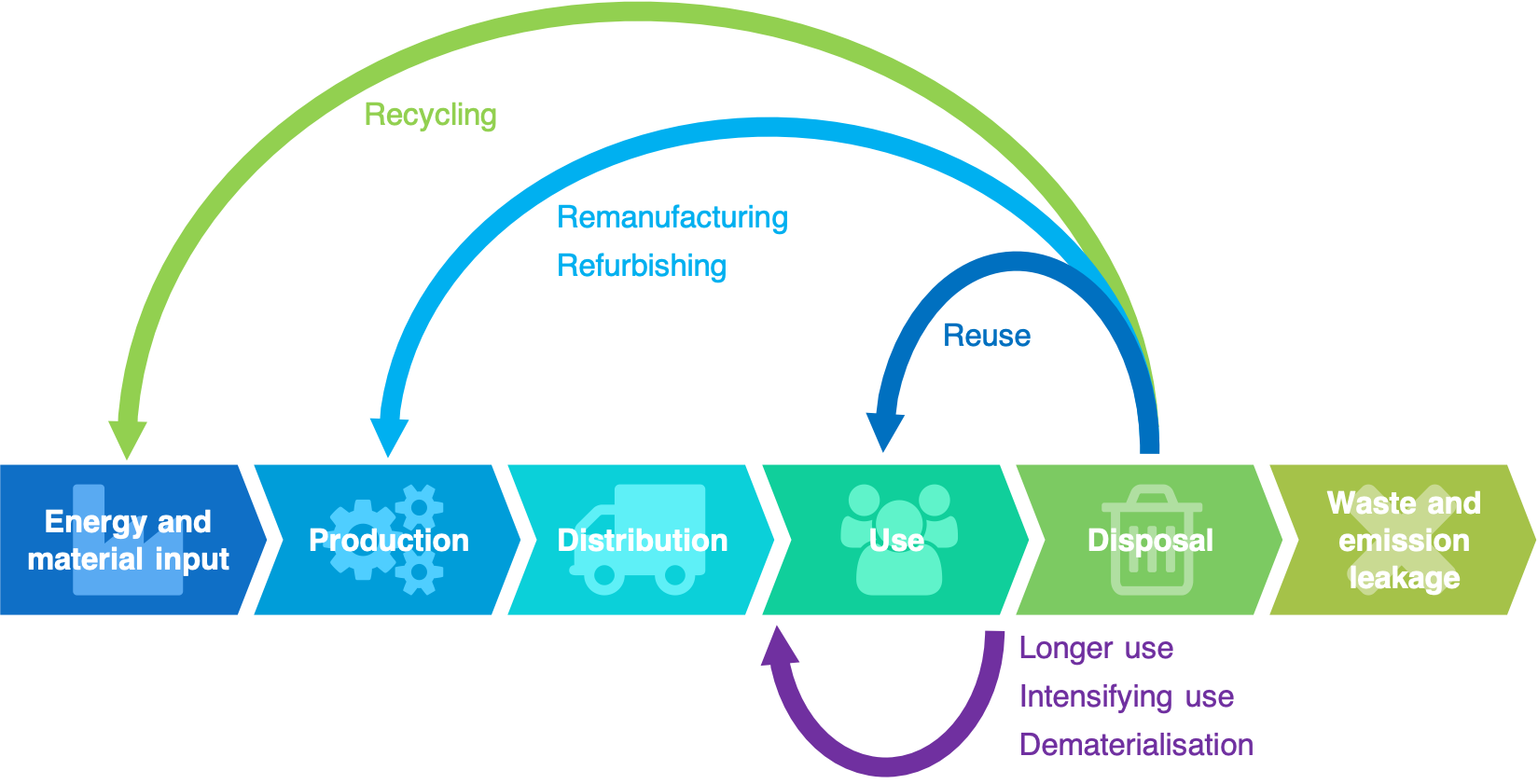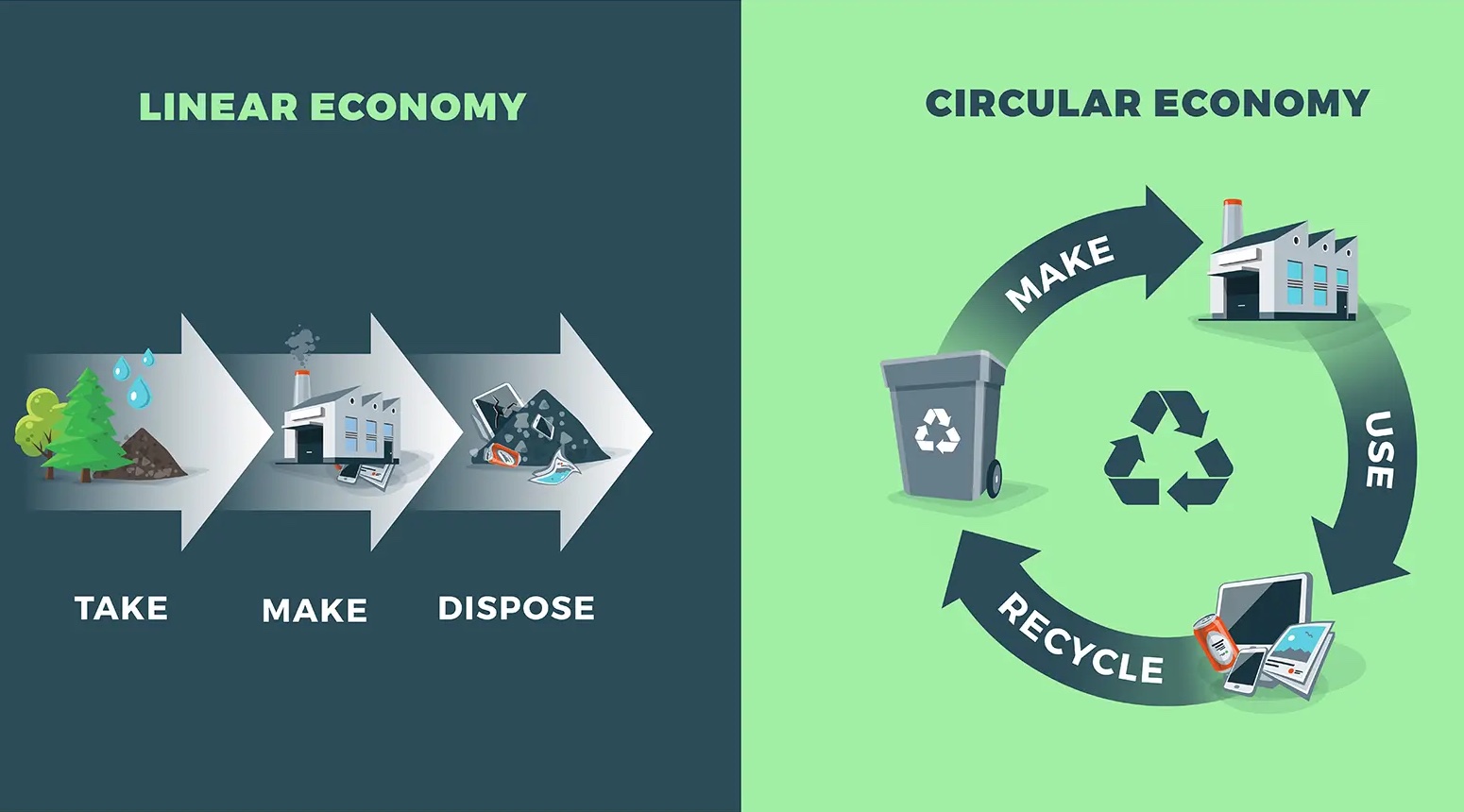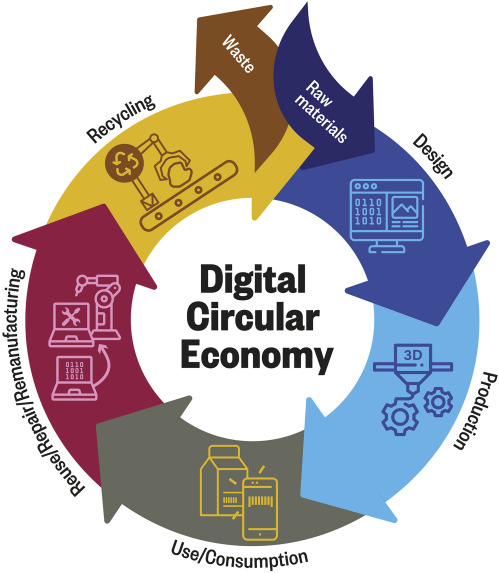Circular Economy
Circular economy is an economic system that aims to keep resources in use for as long as possible and minimize waste. It is a regenerative approach to production and consumption that promotes the restoration and regeneration of natural systems. In contrast to the traditional linear economy, which is based on a "take-make-dispose" model, the circular economy is based on a closed-loop system in which resources are reused, repurposed, or recycled.


Acceleration by DigiTech
The concept of a circular economy has gained momentum in recent years as a response to the unsustainable nature of our current economic system, which is heavily reliant on finite resources and produces massive amounts of waste. The circular economy offers a solution to these challenges by shifting the focus from a linear "take-make-dispose" model to a circular "reduce-reuse-recycle" model. By designing out waste and pollution, keeping products and materials in use, and regenerating natural systems, the circular economy can help us build a more sustainable and resilient future.
To achieve a circular economy, innovative business models, design strategies, and technological solutions are needed. Digitalization plays a crucial role in enabling and accelerating the transition to a circular economy. By harnessing the power of data and technology, we can create more efficient and effective circular systems that reduce waste and maximize resource use.


